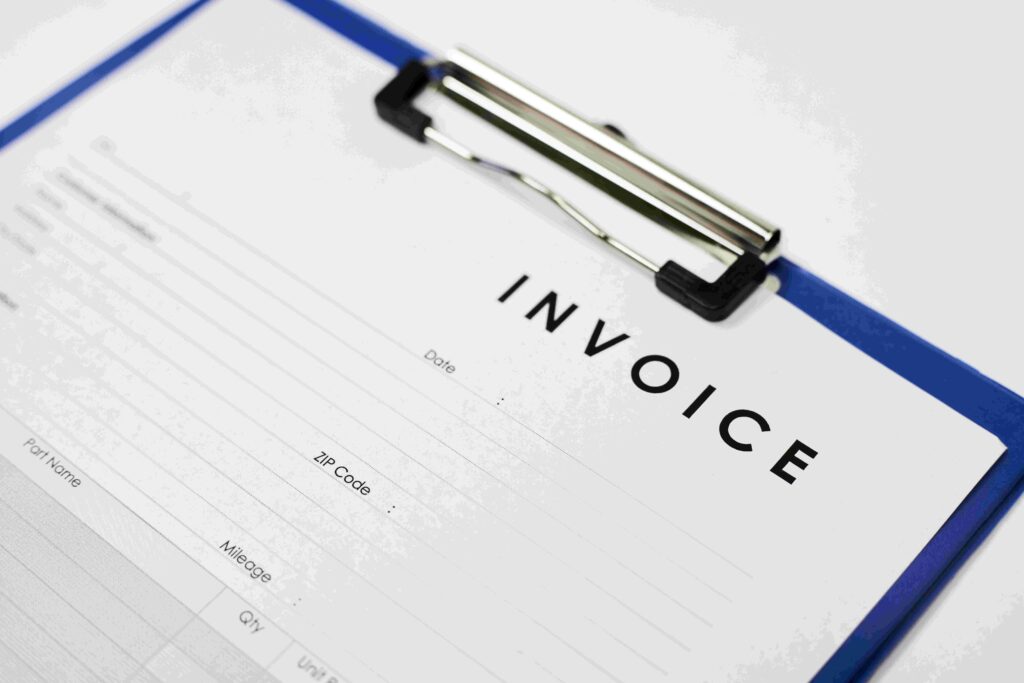Invoice Finance
Cashflow finance, raising funds against outstanding debtors
Invoice Finance
Invoice finance can be ideal for managing cash flow, especially in scenarios where payment delays could impede business operations. It bridges the gap between raising invoices and receiving payments, providing essential liquidity for various needs, such as growth initiatives, supplier payments, or other operational expenses. Available in different forms, including factoring and discounting, invoice finance offers businesses the flexibility to choose a solution that aligns with their specific financial strategies, helping them maintain stability in a dynamic market environment.
YOUR PROJECT, OUR MISSION
Supporting UK businesses with access to Finance That Fits

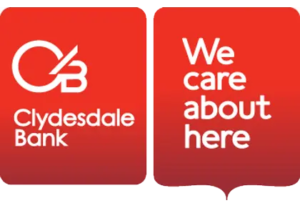




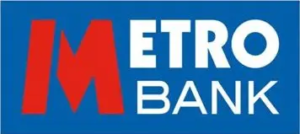





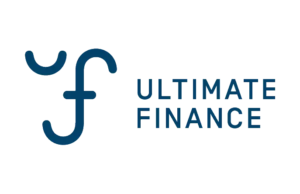

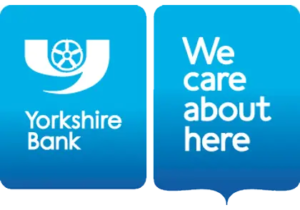

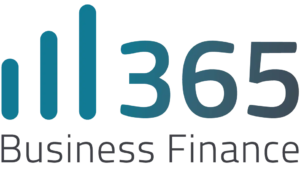
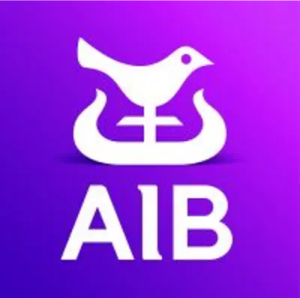

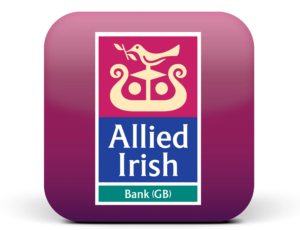



Who is it for
Invoice Finance is a versatile solution suitable for a diverse range of industries, particularly in the B2B sector. However, it’s important to note that this financing option may not be ideal for B2C businesses or specific B2B sectors with unique operational models.
Some of the industries that often benefit from Invoice Finance are:
Construction: Beneficial for contractors and sub-contractors facing payment delays, invoice finance helps maintain cash flow, ensuring they have funds for new projects and materials.
Logistics: Offers cash injections for operations like hiring drivers, enhancing flexibility and competitiveness.
Manufacturing: Supports the cyclical financial needs of the manufacturing sector, helping to manage machinery maintenance costs, payroll, and other operational expenses.
Printing and Publishing: Assists in overcoming the typical 30 or 60-day payment waits, thereby facilitating business growth and equipment maintenance.
Professional Services: Useful for firms like architects, engineers, legal, and financial services, especially where long payment terms are common.
Recruitment: Addresses the cash flow gap between paying staff and receiving client payments, aiding in managing payroll liabilities.
Security Firms: Provides stable cash flow, essential for maintaining business reputation and fulfilling contractual obligations.
Transport Industry: Helps manage fluctuating costs and sporadic funding needs, aiding in long-term planning and operational flexibility.
Wholesale and Distribution: Particularly useful for managing long credit terms common in this industry, helping to sustain cash flow and open new business opportunities.
Some industries can be less suitable, and examples of these include:
B2C Businesses: Invoice finance is generally less suitable for businesses that primarily deal with individual consumers rather than other businesses.
Certain B2B Sectors: Specific B2B sectors that operate on unique business models or have unconventional invoicing processes might find invoice finance less applicable or beneficial.
In conclusion, invoice finance is a valuable tool for many B2B businesses across various industries, especially where there are longer payment terms and a need for stable cash flow. It’s essential for businesses to assess their specific needs and customer base to determine if invoice finance is the right solution for them.

Types of Invoice Finance
Invoice finance is an umbrella term that includes several distinct products, each designed to suit different business needs. The main types of invoice finance are:
Invoice Factoring: In this arrangement, businesses sell their unpaid invoices to a finance provider. The provider advances a substantial portion of the invoice value to the business and takes over the responsibility of collecting payments from customers. This type of finance is beneficial for companies that prefer to outsource their credit control functions, easing their administrative burden. It’s particularly suitable for smaller or less-established companies.
Invoice Discounting: Unlike factoring, invoice discounting allows businesses to maintain control over their sales ledger and credit control processes. The lender provides an advance against the company’s outstanding invoices, but the business remains responsible for collecting payments from its customers. This option is typically confidential, meaning customers are unaware of the lender’s involvement. It’s well-suited for businesses that have established credit control processes and prefer to manage customer relationships directly.
Selective Invoice Finance: This flexible option allows businesses to choose specific invoices or customers for financing, rather than their entire sales ledger. It’s particularly useful for companies that have variable financing needs or wish to maintain more control over their financial arrangements. Selective invoice finance provides the ability to tailor the financing to suit specific business requirements and cash flow needs.
Single Invoice Finance: Also known as spot factoring, this type of finance is designed for businesses looking to fund individual invoices. It’s a useful feature for those who need to release cash tied up in high-value invoices or those with longer-than-usual credit terms. This option provides flexibility and is ideal for managing short-term cash flow requirements.
Each type of invoice finance has its unique features and benefits, making them suitable for different business scenarios. Businesses should consider their specific needs, such as the level of control they want over credit management, the degree of funding required, and the nature of their customer relationships, before choosing the most appropriate invoice finance solution.
The Cost
The pricing of invoice finance is structured differently from traditional loan products and varies based on the type of facility and the provider. It’s essential to understand the cost components involved, which can influence the overall affordability and suitability of the product for a business. Here’s how the pricing is commonly structured:
Service Fee: This is a charge for managing the sales ledger and handling the collection of payments from customers, particularly in factoring arrangements. The service fee is typically a percentage of the turnover or the value of invoices financed and varies depending on the level of service provided.
Discount Charge or Interest Rate: Similar to interest on a loan, this charge is applied to the amount of money advanced to the business. It’s often linked to a benchmark rate like the Bank of England base rate and is calculated either daily or monthly on the outstanding borrowed amount.
Additional Fees: Some invoice finance arrangements may include additional fees for setup, administration, or credit management, depending on the provider and the specific terms of the agreement.
Comparison with Other Product Types
Comparative Cost: Generally, the cost of invoice finance can be comparable to other types of business funding such as overdrafts or loans, but with the added advantage of being directly tied to sales and receivables. This can make it a more flexible and scalable option for businesses with fluctuating cash flow needs.
Flexibility and Risk Profile: Unlike fixed loans, the cost of invoice finance is directly related to the business’s sales volume and the value of outstanding invoices. This means the available funding and associated costs can scale with the business’s revenue, making it a more flexible option for businesses with variable or seasonal income.
Credit Risk Assessment: The focus on invoices and receivables often shifts the credit risk assessment away from the business’s credit score to the creditworthiness of its customers. This can be beneficial for businesses with strong sales but less established credit histories.
In summary, while the pricing of invoice finance can vary depending on the provider and the specific product, it typically involves a service fee and a discount charge or interest rate, with possible additional fees. Its flexibility and scalability make it a unique financial product, often more suited to businesses with variable cash flow needs than traditional loans or overdrafts. Businesses should carefully assess their specific requirements and understand the fee structure before choosing invoice finance as a funding option.

Application process
Applying for invoice finance typically involves providing specific information to the lender. This information helps the lender assess the suitability of the finance product for your business and the risk involved. Commonly required information includes:
Business Details: Basic information about your business, such as company name, type, and registration details.
Financial Statements: Recent financial statements, including profit and loss accounts and balance sheets, to assess the financial health of your business.
Bank Statements: Business bank statements, usually for the last few months, to verify cash flow and financial transactions.
Details of Accounts Receivable: A detailed list of outstanding invoices, including amounts, due dates, and customer information. This helps lenders assess the value of your receivables and the creditworthiness of your customers.
Trading History: Information on your business’s trading history, which can include length of operation and sector experience.
Customer Information: Details about your customers, especially in terms of their payment histories and creditworthiness, as this impacts the perceived risk of the finance.
Credit Control Processes: Information on how your business manages credit control, which is particularly relevant for invoice discounting arrangements.
Application Process Duration
The duration of the application process for invoice finance can vary depending on several factors, including the complexity of your business’s financial situation, the completeness and accuracy of the information provided, and the lender’s processes.
Typically, the process can take anywhere from a few days to a couple of weeks. In many cases, initial approval and access to funds can be quicker, sometimes within 24 to 48 hours of application, especially if the lender has efficient processing systems and the business has readily available and well-organized financial information.
It’s important for businesses to prepare the necessary documentation in advance and to work with lenders who are experienced in handling invoice finance to ensure a smooth and expedient application process.
he application process is typically light-touch, noting that a credit assessment is carried out on any customer you want to offer terms to through CCTS.
Click on the appl here link below and we’ll collect a small amount of initial information from you, and then respond to you within 24 hours.

Further information
Invoice Finance is the descriptive term we use for this type of finance solution. Although the specific product we ultimately recommend might have a similar or even the same name, in the commercial finance sector, it’s typical for different lenders to use different names for comparable products. Therefore, when reviewing this information material, the emphasis should be on the described characteristics, rather than the specific product name. It’s also worth noting that the product we ultimately recommend won’t necessarily align with all of the characteristics discussed within this information material, as our aim is to review all of your requirements and then present options that provide the best overall balanced solution.
working with lenders, for borrowers
Supporting UK businesses with access to Finance That Fits
Other Finance Solutions
questions
&
Answers
Yes, we charge a transparent and fair fee of 0.5% that's typically payable at the end when the loan completes, and in our opinion borrowers should be extra cautious if a broker ever offers to work without charging fee. In these circumstances the broker's income may be based solely on commissions paid by lenders, and commissions vary significantly between different lenders, so the borrower needs to be confident that the broker is not inappropriately influenced by lender commissions. It is critically important that the broker has the borrowers best interests front & centre when presenting choices and making recommendations. Our fee is modest, and if you take a look at what it represents as a portion of borrowing costs over the loan term, you'll see why we're confident it will be far outweighed by the savings we achieve for borrowers and the value of the close support and guidance we provide.
Click here to find out more.
Invoice finance is a funding method where businesses use unpaid invoices to secure loans or advances.
Invoice Finance is the descriptive term we use for this type of finance solution. Although the specific product we ultimately recommend might have a similar or even the same name, in the commercial finance sector, it's typical for different lenders to use different names for comparable products. Therefore, when reviewing this information material, the emphasis should be on the described characteristics, rather than the specific product name. It's also worth noting that the product we ultimately recommend won't necessarily align with all of the characteristics discussed within this information material, as our aim is to review all of your requirements and then present options that provide the best overall balanced solution.
The length the application process can vary, but once a business is set-up with the Invoice Finance provider then drawing funds is typically fast, e.g. 24 hours.
make
an
enquiry





News, Views And Finance Clues

- February 24, 2024
- 11:39 am

- February 23, 2024
- 4:55 pm

- February 23, 2024
- 3:27 pm

- February 23, 2024
- 10:42 am

- February 22, 2024
- 12:36 pm

- February 21, 2024
- 10:30 am
working with lenders, for borrowers
Supporting UK businesses with access to Finance That Fits
Other Commercial Finance Solutions
More News, Views And Finance Clues

- February 24, 2024
- 11:39 am

- February 23, 2024
- 4:55 pm

- February 23, 2024
- 3:27 pm

- February 23, 2024
- 10:42 am

- February 22, 2024
- 12:36 pm

- February 21, 2024
- 10:30 am
EXPERT EVALUATION, EFFECTIVE EXECUTION
Supporting UK businesses with access to Finance That Fits




































